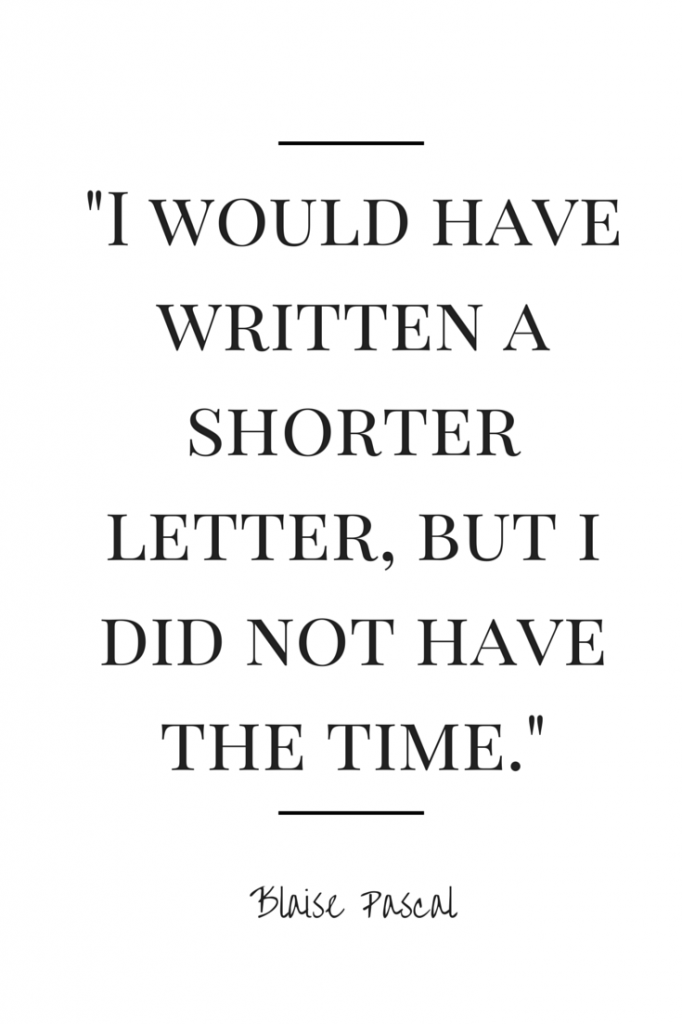
Whether the quote above is attributed to Blaise Pascal or Mark Twain depends on who you ask. I always thought the quote was Twain until I sat down to write this post and discovered that it’s one of a handful of quotes most frequently misattributed to him.
Perhaps the sentiment of the quote is more important in this case than who actually said it, although a lack of correct attribution pains me for obvious reasons.
Either way, writing short is difficult. It is much easier to drone on, including everything and the kitchen sink, than it is to write in the clear, concise manner readers desire most.
Concise writing requires strong, active word choices. It requires careful editing, and a focus and understanding of the topic. All of these things can be difficult.
My best advice to you is to first sit down and write. You cannot fix nothing. You must have something to start with.
Once you have written, use these 11 tips for writing tight during your editing process.
1. Save your money
Pretend every word costs you $1. Save your money. This is perhaps the best tip I can offer on writing tight. Challenge every word. Do this sentence-by-sentence and graph-by-graph. If your writing makes sense without a word, cut it.
2. Use active voice
Active voice is shorter than passive voice. It’s also more exciting to read.
3. Count your commas
How many necessary commas are in your piece? First, get rid of the ones that aren’t necessary. Then, simplify the sentences with more than one comma by rewriting them as two sentences. Vary your sentence length and structure, but don’t bog your readers down with bulky, unnecessary clauses.
4. Write simply
Choose nouns and verbs before adjectives and adverbs. The first two are necessary. The latter two are extras.
5. Write short sentences
At some point we’re taught that long, complex sentences look and sound intelligent. To most readers, they just seem like long, complex sentences. Write in subject-verb-object order. It will keep your sentences short and tidy.
6. Watch for bloat
We have a tendency to use phrases where a single word is better. Some phrases to look for in your writing: in order to (to), in the process of (are), a total of (total), and the fact that (eliminate completely).
7. Avoid subordinate clauses
Subordinate clauses at the beginning of sentences frustrate your reader. They have to dig through your sentence for the meat. If it needs a comma after it, question whether there’s another way to write the sentence or if it’s necessary.
Do you see what I did there?
8. Describe carefully
Description is good, but it can easily inflate writing and/or become editorial. Include only the description that’s necessary for the reader to understand the story.
9. Write what you know
Readers want to know what happened, not what didn’t happen or what could have happened.
10. Delete habit words
We all have unnecessary words that we sprinkle throughout our writing. That is a word I use unnecessarily. I edit my writing once just to remove thats. Very is a word I hate. It adds nothing to your writing, but is used often.
11. Read your writing aloud
We write for the inner ear, not the eye. If you have to take a breath, your sentence is too long.
Concise writing is more difficult than the verbose. It’s also more worthy to the eyes and minds of the readers. These tips will help you edit your writing to make it more concise.